Drug and Alcohol Detox in Lexington
What Levels of Care Are Offered in Lexington Addiction Treatment Center Programs?
Feeling trapped by the cycle of cravings, hangovers, and mounting health worries? You’re not alone, and you don’t have to battle withdrawal symptoms in the dark.
Our drug alcohol detox program gives you something the internet’s home-remedy tips never can: round-the-clock medical supervision from clinicians who’ve guided thousands through the roughest first days of sobriety.
Imagine arriving for a same-day assessment, having your vitals checked, and then settling into a calm, judgment-free space where every shake, sweat, or spike in blood pressure is treated in real time.
We tailor evidence-based medications like buprenorphine for opioids or carefully titrated benzodiazepines for severe alcohol withdrawal to your exact physiology, so you stay safe while your body resets.
Most importantly, you’ll never wake up wondering what happens next; our team maps out a clear path from detox from drugs and alcohol through outpatient therapy, so momentum doesn’t stall once the worst cravings fade. When the fear of withdrawal is replaced by a plan you trust, sobriety stops feeling impossible and starts looking like your new normal.
Why Choose Medical Detox in Lexington, KY?
Picture a detox plan that’s as adaptable as your life, with no mandatory hospital stay, no disappearing from work or family for weeks. That’s exactly what medical detox in Lexington, KY looks like at Lexington Addiction Center.
Our program follows an outpatient / ambulatory model: you arrive for comprehensive vitals, lab work, and physician review each day, then return to the comfort of your bed each night. It’s the best of both worlds—clinical rigor without the institutional walls.
Safety, however, is never compromised. A licensed nurse monitors your progress in real time, and a prescribing provider is on-call 24/7 to adjust medications for withdrawal or pain. Whether you’re tapering off opioids with buprenorphine or managing alcohol tremors with carefully dosed benzodiazepines, every protocol is evidence-based and personalized.
Continuous telemetry, rapid lab turnaround, and daily symptom scoring catch complications before they escalate, giving you and your loved ones peace of mind.
Choosing Lexington Addiction Center also means seamless coordination across levels of care. The same clinicians who stabilize your acute symptoms will smooth your transition into a partial hospitalization program, intensive outpatient therapy, peer support groups, and medication management, so hard-won momentum never stalls. In other words, our alcohol and drug detox isn’t an isolated service; it’s the first, medically sound stride in a longer journey toward lasting recovery—one that keeps you safe today while mapping a clear path for tomorrow.
Inside Our Medical Detox Clinic
Lexington Addiction Center delivers outpatient medical detox that balances clinical precision with genuine compassion.
Each client begins with a same-day assessment, then receives a physician-directed Medication-Assisted Treatment (MAT) plan—buprenorphine or naltrexone for opioids, symptom-specific medications for alcohol and other substances.
Licensed nurses provide round-the-clock medical oversight, tracking vitals at scheduled intervals while an on-call clinician adjusts doses or orders STAT labs whenever needed.
By pairing evidence-based medication protocols with 24/7 nursing support, we make the first step into recovery safe, swift, and dignified without an overnight hospital stay.

Step 1: Comprehensive Intake & Safety Screening
Your first appointment isn’t just a quick questionnaire—it’s a deep dive designed to ensure your detox from drugs and alcohol is as safe as modern medicine allows. We start by logging baseline vitals, conducting an EKG, and drawing labs that check liver function, electrolyte balance, and infectious-disease markers.
Next comes a detailed substance-use and mental health history, scored against ASAM criteria to pinpoint your exact level of clinical need. A board-certified provider then walks you through a head-to-toe exam, noting withdrawal severity, co-occurring conditions, and any medications you’re already taking.
All of these data points feed into an individualized detox protocol: target medications, dosing schedule, monitoring frequency, nutrition support, and contingency plans if complications arise. You’ll leave the intake session with a printed roadmap, direct nurse line, and a follow-up time slot, often the very next morning, so you’re never wondering what comes next.
From the moment that plan is in your hands, withdrawal stops feeling like a looming threat and starts looking like a series of manageable, medically guided steps.

Step 2: Evidence-Based Detox Protocols
Once your personalized plan is set, our medical team moves quickly into action with protocols grounded in the latest addiction-medicine research.
For prescription-opioid or heroin withdrawal, Medication-Assisted Treatment (MAT) is the gold standard. Most clients begin a buprenorphine induction within hours of arrival—a partial opioid agonist that eases cravings and prevents the dramatic peaks and valleys that drive relapse.
As stability builds, some transition to naltrexone, an opioid antagonist that blocks euphoric effects and supports long-term maintenance without physical dependence.
Dosing isn’t one-size-fits-all; clinicians titrate daily based on your withdrawal-severity scores, vital signs, and self-reported comfort.
Alcohol withdrawal presents its medical risks, from severe tremors to the potentially fatal delirium tremens (DTs). When your assessment flags moderate-to-severe symptoms, we deploy carefully tapered benzodiazepines—often diazepam or lorazepam—to calm overactive neural pathways and prevent seizures.
Because benzodiazepines carry their own dependence risk, our providers use symptom-triggered dosing and switch to non-sedating medications as soon as it’s clinically safe.
Throughout every protocol, you remain under continuous clinical supervision. Licensed nurses perform symptom checks and vital monitoring at scheduled intervals—more frequently if your scores climb.
A prescribing provider is on call around the clock to adjust medications, order STAT labs, or arrange rapid transport to a higher level of care if complications arise. This constant oversight, validated in our MAT program model, means no spike in blood pressure, heart rate, or anxiety goes unnoticed or untreated.
By combining pharmacotherapy with vigilant monitoring, Lexington Addiction Center transforms alcohol and drug detox from a roll of the dice into a controlled, science-driven process—one that minimizes discomfort, lowers complication risk, and keeps you engaged for the crucial next steps of recovery.
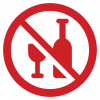
Alcohol Detox: What to Expect
What is alcohol detox? In plain terms, alcohol detox is the medically supervised process of clearing ethanol and its toxic by-products from your body while keeping potentially dangerous withdrawal symptoms in check.
At Lexington Addiction Center, this service sits under our broader alcohol and drug detox program. It is delivered on an outpatient/ambulatory basis—meaning you come in for daily monitoring and medication, then sleep in your bed once you’re medically stable.
Withdrawal risks. Even casual drinkers can experience tremors, nausea, and crushing headaches within 6–12 hours of their last drink.
For long-term or high-volume users, the danger escalates: severe hypertension, hallucinations, and the life-threatening delirium tremens (DTs) can strike between 48 and 72 hours. That’s why at-home “white-knuckling” isn’t just uncomfortable—it can be fatal.
Medication support. Our clinicians rely on symptom-triggered benzodiazepine tapers to quiet over-firing nerve pathways and prevent seizures.
Vitamins like thiamine and folic acid guard against Wernicke-Korsakoff syndrome, while anti-nausea meds, sleep aids, and electrolyte replacement keep you comfortable enough to stay the course.
Every dose is adjusted in real time based on your vital signs and withdrawal-severity score.
Typical timeline. Most clients spend three distinct phases with us:
- Evaluation (Day 0–1): Labs, EKG, and a full medical history set the baseline.
- Stabilization (Day 1–4): Highest medication needs; vitals checked every few hours.
- Transition (Day 4–7+): Meds taper down; you shift focus to hydration, nutrition, and planning next-step therapy.
Severe cases may require referral to an inpatient unit, which is something our team coordinates seamlessly if red-flag symptoms emerge. For the majority, though, daily clinic visits provide ample safety while preserving your normal routine.
By the time acute withdrawal passes, you already have an appointment on the books for Intensive Outpatient or MAT follow-up, turning the end of detox into the start of sustainable recovery.

Oxycodone & Prescription Opioid Detox
Wondering how to detox from OxyContin (oxycodone) without swapping one problem for another? The first rule is simple: skip the cold-turkey approach.
Abrupt cessation can unleash severe muscle pain, vomiting, diarrhea, and blood pressure spikes that send many people sprinting back to their next pill.
Instead, Lexington Addiction Center’s medical detox protocol in Lexington, KY, uses Medication-Assisted Treatment (MAT) to reduce suffering and lower relapse risk.
Why MAT works. We typically begin with a low-dose buprenorphine induction once moderate withdrawal signs appear (e.g., yawning, sweating, gooseflesh). Buprenorphine partially activates opioid receptors, curbing cravings without triggering the euphoric high of full agonists.
As your symptoms stabilize, the dose is gradually lowered or transitioned to extended-release naltrexone, which blocks opioid effects entirely—making future slips far less rewarding.
Craving management. Physical relief is only half the battle; psychological cravings often linger. Daily check-ins include CBT-based coping skills, mindfulness exercises, and peer-support referrals so you learn to ride out urges without relying on medication alone.
For clients with chronic pain, our medical director collaborates with primary-care physicians to explore non-opioid treatments—think NSAIDs, nerve-block injections, or physical therapy so pain relief remains achievable post-detox.
Safety net. Licensed nurses monitor vitals and withdrawal scores every visit, while a prescribing provider stays on call 24/7. If blood pressure climbs or precipitated withdrawal appears, medications are adjusted immediately.
Because the program is ambulatory, you’re free to return home each evening, but you also have a direct nurse line should late-night symptoms flare.
The payoff. Within seven to ten days, most clients report normalized sleep, steadier mood, and a sharp drop in cravings.
By linking straight into Intensive Outpatient Therapy and ongoing MAT management, we turn detox from a standalone event into the launching pad for lasting opioid-free living without the agony of going it alone.
Typical Detox Timeline: Evaluation → Stabilization → Transition
Remember, these day ranges are guidelines, not guarantees.
Factors like polysubstance use, chronic health conditions, or previous detox complications can stretch or compress the timeline. Lexington Addiction Center adjusts monitoring frequency, medication dosing, and follow-up appointments in real time so your detox from drugs and alcohol stays personalized from first vitals to final clearance.
| Day | Phase | What Happens |
|---|---|---|
| 0 – 3 | Evaluation | Your first three days are all about data and rapid relief. You’ll complete labs, an EKG, and ASAM-based interviews while clinicians log baseline vitals every few hours. Medication-Assisted Treatment (MAT) typically begins on Day 1: buprenorphine for opioid users once mild withdrawal kicks in, or symptom-triggered benzodiazepines for alcohol tremors. Expect frequent hydration, electrolytes, and nutrition support as your body starts to clear toxins. Most people feel the sharpest physical symptoms, such as nausea, sweats, and shaky hands, during this window. |
| 4 – 7 | Stabilization | By mid-week, medication doses are fine-tuned rather than increased. Sleep and appetite start to normalize; blood pressure and heart rate readings trend downward. Daily clinic visits continue, but vitals checks may shift from every few hours to twice per day as risk levels drop. Counseling staff introduce coping skills, including breathing drills, grounding exercises, and brief CBT sessions to tackle the first waves of psychological craving that often replace physical discomfort. |
| 8 – 10+ | Transition | Acute withdrawal symptoms have largely subsided, allowing tapering or discontinuation of detox-specific meds. Attention pivots to longer-term recovery: insurance-verified admission into Intensive Outpatient or MAT follow-up, family education sessions, and scheduling your first relapse-prevention workshop. Some clients wrap detox by Day 8; others—especially long-term alcohol users—may need monitoring into Day 10 or beyond. Your provider decides readiness using withdrawal-severity scores, stable labs, and your own comfort level, ensuring you step forward only when medically safe. |
Remember, these day ranges are guidelines, not guarantees. Factors like polysubstance use, chronic health conditions, or previous detox complications can stretch or compress the timeline. Lexington Addiction Center adjusts monitoring frequency, medication dosing, and follow-up appointments in real time so your detox from drugs and alcohol stays personalized from first vitals to final clearance.
What Happens After Detox? PHP · IOP · OP

Partial Hospitalization Program
About six treatment hours, five days a week. You dive into daily group therapy, individual counseling, and medication management while still sleeping at home or in a sober-living house of your choosing. PHP offers hospital-level structure without an overnight stay.

Intensive Outpatient Program
Nine clinical hours spread across three or four days. Small CBT groups, relapse-prevention workshops, and weekly one-on-one sessions help you test new coping skills in real time—then return to work or family life each evening.

Outpatient Program
One to three hours a week. Ideal for people who have completed PHP or IOP and want to maintain accountability through check-ins, medication adjustments, or booster therapy sessions.
Because the same clinical team oversees your detox and outpatient care, there’s no re-explaining your history or re-filling paperwork.
A hand-off meeting reviews your progress, refines your treatment goals, and locks in a schedule that fits around work, school, or parenting.
From there, you’ll layer in peer-support meetings, family therapy, and alumni events, turning the hard-won gains of medical detox into the foundation of long-term recovery.
Types of Addiction Therapy Approaches
There are several types of addiction therapy approaches used to treat substance use disorders. These include behavioral therapies, motivational counseling, trauma-focused interventions, family therapy, and holistic options. While some people respond well to one method, many benefit from a combination.

Family Therapy
Addiction affects not just the individual but entire family systems. Family therapy recognizes this impact and works to heal relationships while creating a supportive environment for recovery. This approach addresses communication patterns, boundary issues, and enabling behaviors that may inadvertently contribute to continued substance abuse.
Through family therapy sessions, family members learn about addiction as a disease, develop better communication skills, and establish healthy boundaries. This therapeutic approach also helps address any family trauma or dysfunction that may have contributed to the development of addiction, creating a more stable foundation for long-term recovery.

Holistic and Alternative Therapies
Holistic approaches to addiction therapy recognize that recovery involves healing the whole person—mind, body, and spirit. These therapies complement traditional treatment methods and may include activities such as yoga, meditation, art therapy, music therapy, and acupuncture. While these approaches may not be primary treatments, they provide valuable stress relief and help individuals develop healthy coping mechanisms.

Medication-Assisted Treatment (MAT)
Medically-assisted treatment (MAT) combines behavioral therapy with FDA-approved medications to treat substance abuse disorders. This approach is particularly effective for opioid and alcohol addiction therapy, where medications can help reduce cravings and withdrawal symptoms while patients engage in counseling and behavioral therapies.
MAT is not replacement therapy but rather a comprehensive approach that addresses both the physical and psychological aspects of addiction. When combined with substance abuse counseling techniques, MAT can significantly improve treatment outcomes and reduce the risk of relapse.

Cognitive Behavioral Therapy (CBT)
Cognitive behavioral therapy and substance abuse treatment go hand in hand, making CBT one of the most widely used and effective approaches in addiction recovery. Cognitive behavioral therapy for addiction treatment focuses on identifying and changing negative thought patterns that contribute to substance abuse behaviors.
For example, someone might believe they can’t cope with stress without alcohol. CBT challenges that belief and replaces it with practical tools such as relaxation techniques or communication strategies that help the individual stay in control without using. Over time, clients build confidence in their ability to face life’s challenges without turning to substances. CBT is particularly effective in treating co-occurring disorders like anxiety and depression alongside addiction.

Dialectical Behavior Therapy (DBT)
Dialectical Behavior Therapy for addiction is especially helpful for individuals who struggle with emotional regulation and intense interpersonal conflicts. Originally developed to treat borderline personality disorder, DBT has become an effective tool in addiction treatment particularly when trauma or mental health disorders are involved.
DBT focuses on four core modules: mindfulness, distress tolerance, emotion regulation, and interpersonal effectiveness. These skills are particularly valuable for individuals in recovery, as they provide concrete strategies for managing difficult emotions without turning to substances. The mindfulness component helps patients stay present and aware of their thoughts and feelings, while distress tolerance skills provide healthy alternatives to substance use during times of crisis.
The interpersonal effectiveness module of dialectical behavior therapy for addiction helps patients improve their relationships and communication skills, which are often damaged by substance abuse. By learning to navigate relationships more effectively, individuals can build stronger support systems that contribute to long-term recovery success.

Behavioral Therapy for Addiction
Behavioral therapy is one of the most common forms of addiction treatment. It focuses on identifying negative behaviors linked to substance use and replacing them with healthier habits. This approach helps clients understand how certain actions, environments, or thought patterns lead to drug or alcohol use and how to interrupt that cycle. At Tulip Hill Healthcare, our therapists guide clients in developing skills to manage triggers, avoid high-risk situations, and reinforce positive decision-making. This approach is effective in both early recovery and relapse prevention, offering clear strategies for long-term success.

Motivational Interviewing (MI)
Motivational Interviewing (MI) is a client-centered technique that focuses on enhancing internal motivation to change. Many people entering treatment are unsure about quitting or feel conflicted. MI helps resolve that ambivalence about recovery. Through open-ended questions and guided conversation, therapists help clients explore their values, goals, and readiness for change. Instead of confronting or lecturing, MI encourages clients to find their own reasons for pursuing sobriety. This self-discovery process often leads to stronger commitment to recovery and better treatment outcomes.

Eye Movement Desensitization and Reprocessing (EMDR)
For individuals whose addiction is rooted in trauma, Eye Movement Desensitization and Reprocessing (EMDR) can be a powerful therapeutic tool. EMDR helps process traumatic memories that may contribute to substance abuse, allowing individuals to heal from past experiences that fuel their addiction. This evidence-based approach uses bilateral stimulation, typically through guided eye movements, to help the brain process traumatic memories more effectively. By addressing underlying trauma through EMDR, patients often find that their urges to use substances decrease significantly, as they no longer need substances to cope with unresolved traumatic experiences.

Insurance & Payment Made Simple
Your insurance may cover the cost of detox and rehab, and Lexington Addiction Center makes verifying that promise effortless.
One quick phone call or a 60-second online form lets our admissions team run a real-time benefits check with carriers like Blue Cross Blue Shield, Aetna, Cigna, UnitedHealthcare, or Kentucky Medicaid. Within hours, you’ll know:
- Your deductible and out-of-pocket maximum
- Any prior-authorization requirements
- Covered levels of care (detox, PHP, IOP, OP)
- Estimated co-pay or co-insurance
If you’re uninsured or under-insured, we’ll walk through payment plans, sliding-scale fees, and local scholarship funds that can shrink upfront costs. All quotes are free, confidential, and never lock you into treatment. You’re simply arming yourself with facts before you decide. Ready to see what your plan covers?
Call the admissions line or click “Verify My Insurance” on our website, and let Lexington Addiction Center handle the paperwork while you focus on healing.

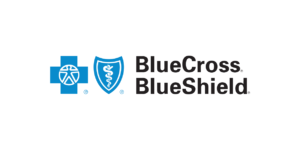
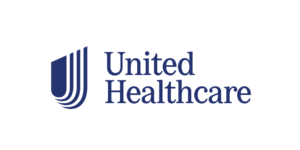
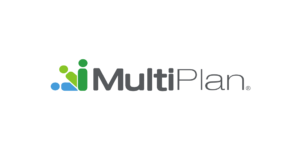
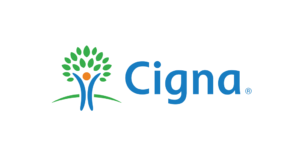
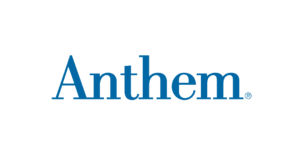
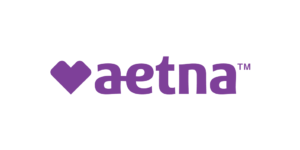
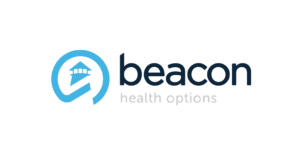
Why Lexington Addiction Center Stands Out
-
Clinician-Owned & Operated: Your care is designed and overseen by the same medical providers who founded the program, so clinical ethics and your outcomes always outrank profit margins.
-
Intentionally Small Groups: We limit psycho-educational groups to twelve participants, ensuring every voice is heard and every question gets airtime.
-
Twice-Weekly Individual Therapy: Most outpatient detox programs schedule one private session per week; we double that cadence to fast-track work on trauma, anxiety, and relapse triggers.
-
Family Sessions Built In: Loved ones can join therapist-led meetings onsite or via secure video to learn boundary-setting skills and create a supportive home environment.
-
Holistic Add-Ons: Optional yoga, guided meditation, and nutrition consults help regulate the nervous system, restore energy, and keep you grounded during early recovery.
-
Seamless Continuum of Care: The same clinicians who oversee your detox guide your transition into PHP, IOP, and OP, eliminating paperwork bottlenecks and “starting over” stress.
Those touches may look small on paper, but together they create a detox experience that feels safer, more connected, and most importantly, tailored to you.
Frequently Asked Questions About Addiction Treatment and Mental Health Programs
Alcohol detox is the medically supervised process of clearing ethanol and its toxic by-products from your system while controlling withdrawal symptoms that can range from shaky hands to life-threatening delirium tremens (DTs).
At Lexington Addiction Center, the first step is a same-day evaluation—labs, vitals, and a symptom score—that dictates a personalized medication plan. Most clients receive a benzodiazepine taper to prevent seizures, plus thiamine and electrolyte replacement to guard brain and heart health.
Daily check-ins let nurses track blood pressure and adjust doses in real time. Because our program is ambulatory, you sleep in your bed once stable, yet still have 24/7 phone access to a clinician.
By pairing evidence-based meds with constant monitoring, alcohol detox shifts from a risky DIY project to a safe, structured launchpad for long-term recovery.
Going cold turkey from OxyContin—or any oxycodone pill—can unleash debilitating muscle pain, vomiting, and dangerous spikes in blood pressure that send many people straight back to using.
A safe exit hinges on Medication-Assisted Treatment (MAT). Lexington Addiction Center starts most clients on low-dose buprenorphine once moderate withdrawal signs appear (think yawning, sweating, gooseflesh). Buprenorphine partially activates opioid receptors, easing cravings without the euphoric high. Over several days, the dose is tapered or switched to extended-release naltrexone, which blocks any future opioid effect.
Nurses check your vitals at each visit, and a prescribing provider stays on call around the clock, ready to adjust meds if precipitated withdrawal flares. Add CBT-based coping skills and family support sessions, and you have a full suite of safeguards that turns a brutal exit into a manageable, medically guided process.
Most people complete acute drug and alcohol detox in seven to ten days, but the exact timeline depends on the substance, dose, overall health, and any co-occurring conditions.
At Lexington Addiction Center, the journey unfolds in three phases: Evaluation (Days 0-3) brings labs, EKG, and the first doses of MAT; symptoms peak but are controlled with 24/7 medical oversight. Stabilization (Days 4-7) involves fine-tuning medication and the gradual return of sleep and appetite, plus the introduction of relapse-prevention skills. Transition (Days 8-10+) focuses on tapering meds and enrolling you in PHP, IOP, or OP so support doesn’t evaporate when withdrawal fades.
Polysubstance users or clients with chronic health issues may need a few extra days, while first-time detoxers on lower doses often progress faster. Your provider adjusts the schedule in real time to keep safety and comfort front and center.
Ready to Start Drug Alcohol Detox Today?
Freedom from cravings can begin before the day is over. Call Lexington Addiction Center and ask for your same-day assessment—no referrals, no endless waitlists. Our 24/7 hotline connects you directly to a licensed clinician who will answer questions, verify insurance in minutes, and schedule your first visit.
The sooner you step into our medically supervised drug and alcohol detox program, the sooner you’ll trade fear of withdrawal for a clear, personalized plan forward. Reach out now and turn today into Day One of lasting recovery.

| Medically Reviewed By: Board-Certified Psychiatrist and Addictionologist |

| Clinically Reviewed By: Board Certified Clinical Social Worker |
Your Insurance May Cover The Cost Of Detox and Rehab

Contact Us Today
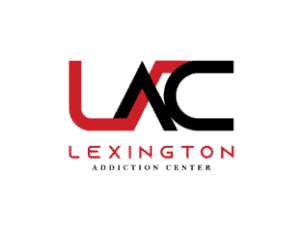
Addiction and co-occurring disorders don’t have to control your life. Lexington Addiction Center is waiting with open arms to give you the tools necessary for lasting change. Reach out to us today to learn more.
Get Family Support Now
Supporting Families Through Recovery
We understand addiction affects the whole family. Our comprehensive family program helps rebuild trust and restore relationships.
Weekly Family Therapy Sessions
Educational Workshops
Support Groups
Communication Skills Training
Get Family Support Now

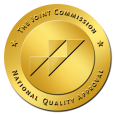
 859-681-7823
859-681-7823